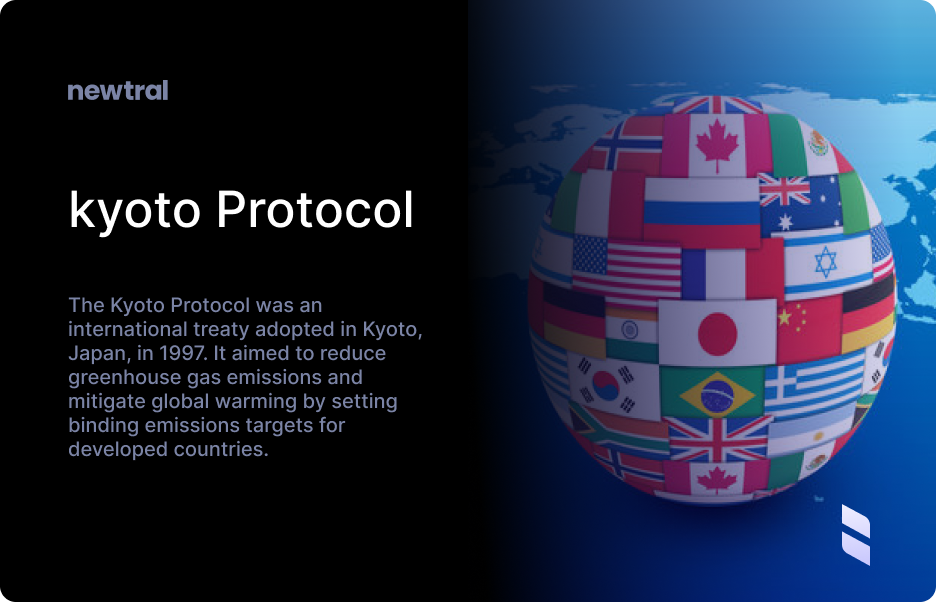What is the Kyoto Protocol?
The Kyoto Protocol is an international agreement adopted in 1997 under the United Nations Framework Convention on Climate Change (UNFCCC). It legally binds developed countries to reduce greenhouse gas emissions in accordance with negotiated targets. The Protocol operationalizes the principles of the UNFCCC by setting quantified emission reduction targets for developed countries, while providing mechanisms for achieving these targets, such as emissions trading, clean development mechanisms, and joint implementation.
Economic impacts
- Compliance costs for businesses to invest in clean tech and reduce emissions.
- Competitiveness concerns for companies in stricter regulatory environments.
- Impacts on energy-intensive industries.
- New market opportunities in clean tech and carbon trading.
Impact on global GHG emissions
The Kyoto Protocol led to emissions reductions in participating developed countries during its first commitment period, but had a limited overall impact globally due to non-participation from major emitters like the US and exemptions for rapidly industrializing nations. While falling short of its goals, it paved the way for future climate agreements and introduced emissions trading mechanisms.



.png)
%20png%20(1).png)